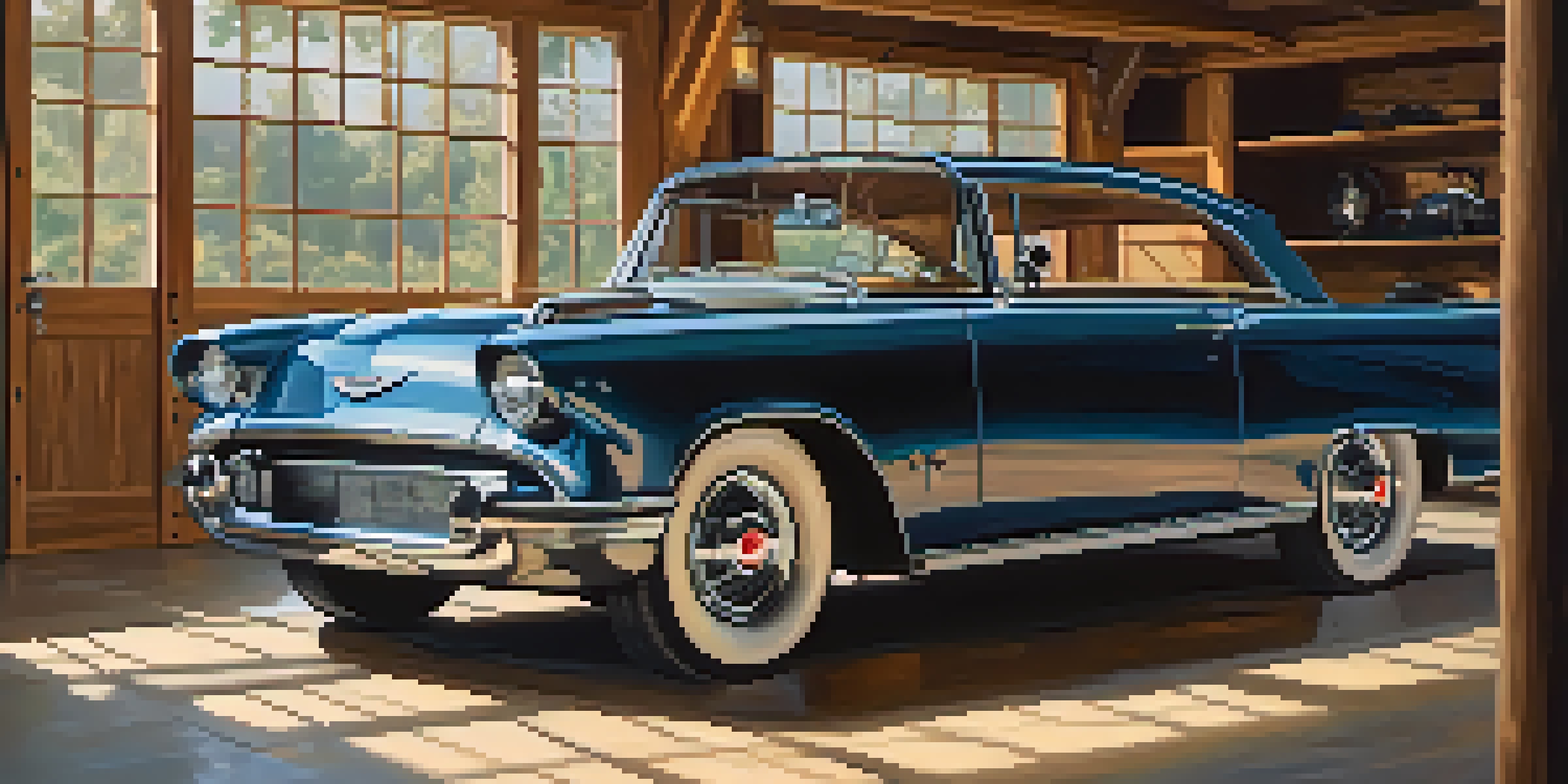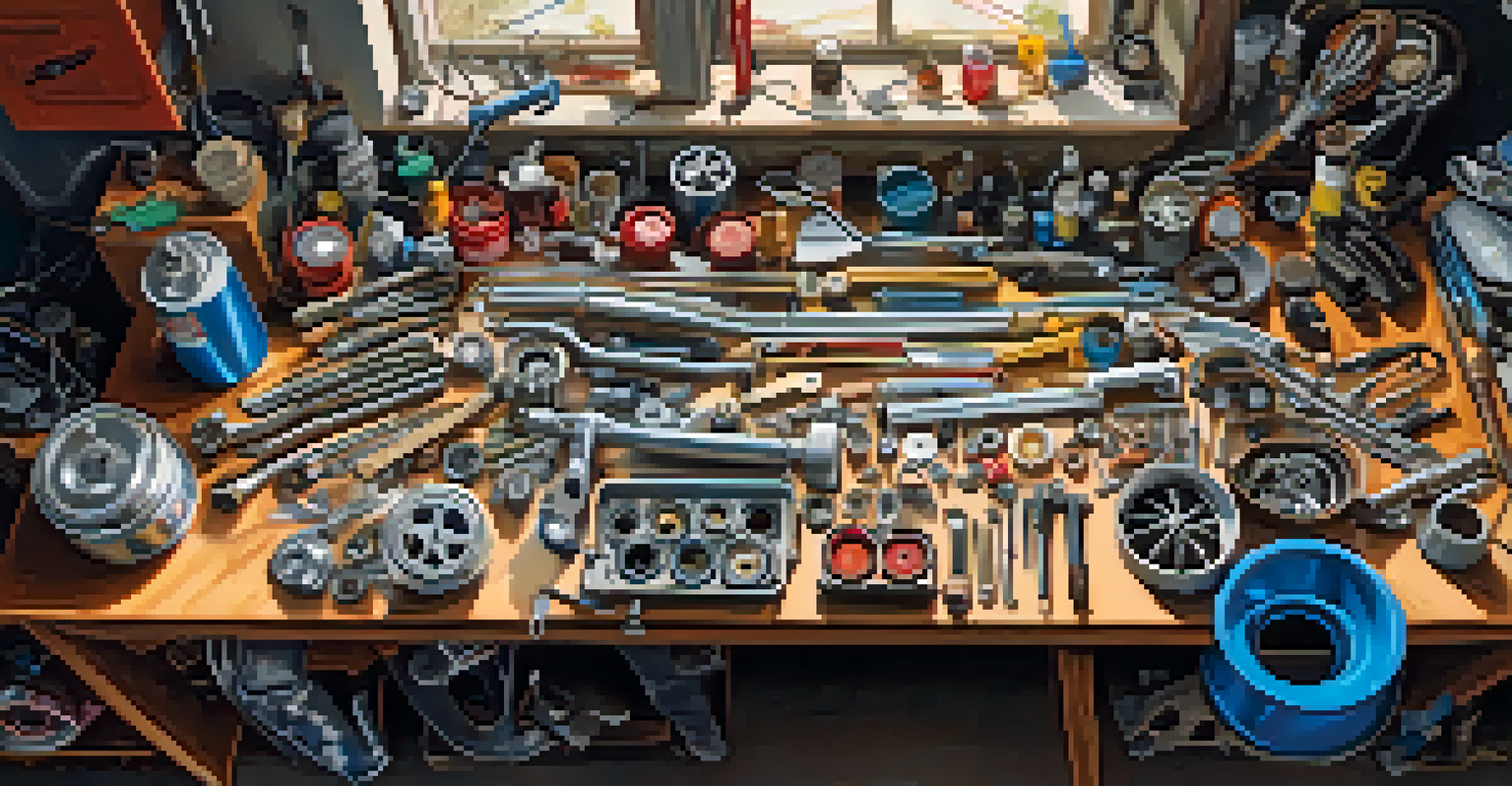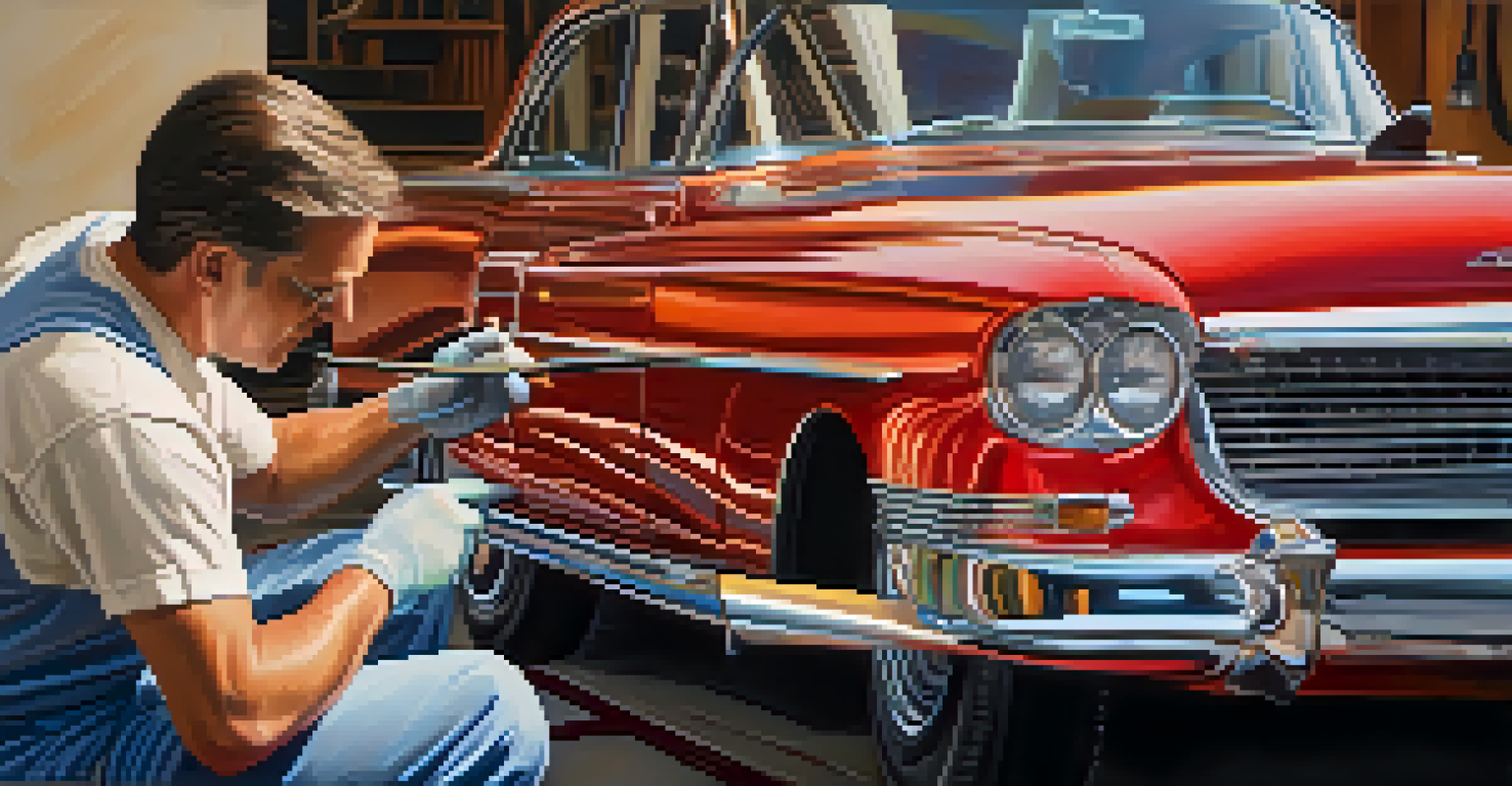Understanding the Costs Involved in Car Restoration

The Initial Purchase Cost of Your Restoration Project
The first cost to consider when restoring a car is the purchase price. This can vary greatly depending on the make, model, and condition of the vehicle. A classic car that needs work might be less expensive upfront but could require more investment later on.
The bitterness of poor quality remains long after the sweetness of low price is forgotten.
For example, finding a rust-free body can save you a lot of money in the long run, while a cheap option with a lot of damage might lead to hidden costs. It's essential to do thorough research and inspections before making a purchase.
Ultimately, this initial investment sets the stage for your entire restoration budget, so choose wisely!
Assessing Parts and Materials Costs
Once you've secured your vehicle, the next big expense comes from parts and materials. Depending on the car's age and rarity, sourcing these parts can range from straightforward to downright challenging.

For instance, some classic cars have readily available aftermarket parts, while others may require custom fabrication. This can significantly impact your budget, so it's vital to account for these potential expenses early on.
Initial Costs Set the Tone
The upfront purchase price of a restoration project significantly influences your overall budget.
Don't forget to include costs for materials like paint, sealants, and tools, as these can add up quickly. Planning ahead can save you from surprising expenditures down the road.
Labor Costs: DIY vs. Professional Help
Labor costs can be one of the most significant factors in car restoration. If you're handy with tools and have the time, doing the work yourself can save you a lot of money.
The only way to do great work is to love what you do.
However, if you're not experienced or the project is beyond your skill level, hiring professionals may be necessary. Professional shops can charge anywhere from $50 to over $150 per hour, depending on their expertise and location.
Weighing the pros and cons of DIY versus hiring help is crucial. Sometimes, investing in a professional can lead to a higher-quality finish and save you from costly mistakes.
Hidden Costs to Keep in Mind
When budgeting for car restoration, it's easy to overlook hidden costs that can arise unexpectedly. These might include additional repairs uncovered during the process, such as engine rebuilds or transmission issues.
Moreover, costs for permits, inspections, and even insurance can sneak up on you. It's wise to set aside a contingency fund, usually around 10-20% of your total budget, to cover these unforeseen expenses.
Plan for Hidden Expenses
Unexpected costs, such as repairs and permits, can arise during restoration, making a contingency fund essential.
Being prepared for these surprises will help you maintain peace of mind and keep your project on track.
Time Investment: A Hidden Cost of Restoration
While many focus on the financial aspect, the time required for a car restoration can be just as costly. Depending on the complexity of your project, it can take weeks, months, or even years to complete.
This time commitment can affect your daily life, especially if you're balancing work and personal responsibilities. Understanding how much time you can realistically dedicate to the project is essential in setting your expectations.
In some cases, taking your time can lead to better results. But remember, the longer you take, the more it may cost in terms of parts and materials.
Insurance and Registration Fees
After completing your restoration, don’t forget about insurance and registration fees. These costs can vary widely based on the value of the car and your location.
Classic and restored cars often require specialized insurance, which can be more expensive than standard policies. It's important to research different insurance options and get quotes tailored to your vehicle's new value.
Time is a Valuable Investment
The time commitment required for restoration can impact both your budget and daily life, highlighting the importance of realistic planning.
Additionally, factor in registration fees, which can include taxes and necessary inspections. These costs are vital for getting your car on the road legally!
The Joy of Restoration: Worth the Costs?
Despite the numerous costs associated with car restoration, many enthusiasts find the experience rewarding. The joy of bringing a classic back to life and the satisfaction of your hard work can outweigh the expenses.
Moreover, restored cars can hold their value well, sometimes appreciating over time, especially if they're unique or rare models. This potential for value increase can make the investment feel worthwhile.

Ultimately, the journey of restoration is often as valuable as the end product. Enjoying the process can make all the costs feel justified.